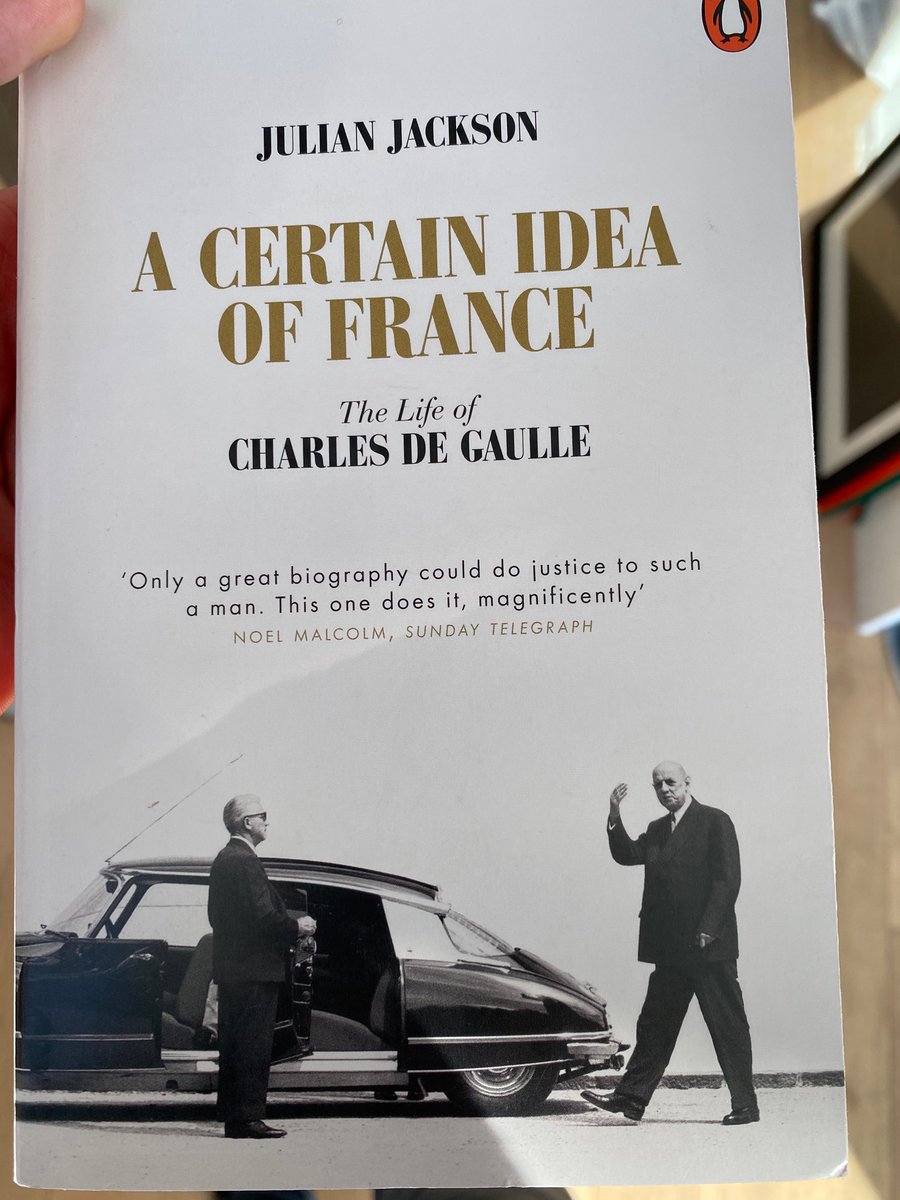Maybe the best book to understand some of the modern dilemmas of French foreign policy, but also lessons for transatlantic relations.
De Gaulle’s political genius during WWII was to understand immediately that Allies would win the war once the US got in. So the real issue wasn’t so much fighting Germany, as making sure France would be part of the post-war solution and stay sovereign.
He understood before others (like Roosevelt or Jean Monnet) that Petain was a traitor and Vichy absolutely irrecuperable. His objective was to have the Free French recognized as the legitimate representative of France, rather than the Vichy adjacent figures FDR favored.
Why did that matter so much? Because it was about avoiding a French occupation by allied forces after the end of the war, or being relegated to second rank status. This explains a lot of the Franco-American differences in the last 70 years.
De Gaulle or his successors were lucid about the balance of power and the need for the Alliance for French security. In key crises, like Cuba, he immediately sided with the US. But then also he followed an independent foreign policy, often at Washington’s great annoyance.
It’s obviously of interest today, not only because few modern figures had such impact on their own country as de Gaulle had on France (including on his opponents); but also because French foreign policy and concepts shape a lot of the current European debate.
Funnily enough, on key issues of contentions... the US often ended up years later rejoining the French position. On the China recognition, the added value of allied nuclear power, the unwinnable nature of Vietnam. Like later on Iraq.
And yet, the French are still seen as a “difficult“ ally. There’s here a real difference in appreciation of how allies should operate. I know American policymakers who happily acknowledge that the 2003 Iraq war was a mistake but still hold a grudge against Paris for opposing it!
And at the same time, the bilateral relationship on defense and security is the strongest it’s ever been. As Mattis put it, the French military is now “the partner of choice”. @OlivierR_Bel and @jeffdlightfoot had a great report on this: https://www.atlanticcouncil.org/in-depth-research-reports/report/sovereign-solidarity-france-the-us-and-alliances-in-a-post-covid-world/
Knowing this history could show that autonomous allies can give your foreign policy flexibility and valued added. They can test policies before you do. The EU-3 diplomacy with Iran is a good example. French diplomacy with China 10 years before Nixon another.
American policymakers shouldn’t fear autonomous allies, they should fear weak and divided ones. It would be good to remember this history before embarking on other rounds of transatlantic woes on strategic issues. Listen, encourage to step up, understand the differences.

 Read on Twitter
Read on Twitter